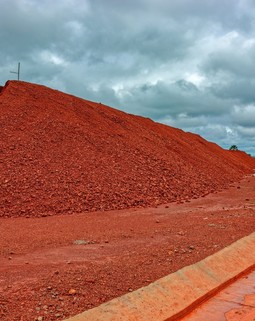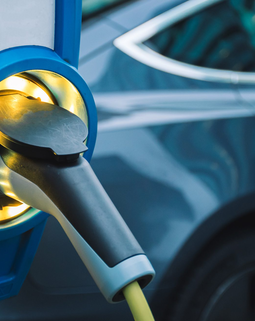Guinea, home to the world’s largest bauxite reserves, plays a crucial role in the global aluminum supply chain, a key material in the automotive industry. However, human rights abuses and environmental concerns in Guinea’s mining sector have sparked calls for greater accountability from car manufacturers reliant on aluminum. This article examines the challenges and opportunities for Guinea’s aluminum sector and its relationship with the global automotive industry.
Guinea’s Role in the Aluminum Supply Chain
Guinea’s bauxite reserves are integral to aluminum production, making the country a significant player in the global automotive industry.
Key Facts:
-
Leading Producer of Bauxite:
• Guinea accounts for approximately a quarter of the world’s bauxite supply. -
Strategic Importance:
• Aluminum derived from Guinea’s bauxite is used extensively in manufacturing lightweight and fuel-efficient vehicles. -
Export Reliance:
• The country exports raw bauxite, with little local processing or value addition.
Human Rights Concerns in Guinea’s Mining Sector
Despite its economic importance, Guinea’s mining sector has faced criticism for human rights violations and environmental degradation.
-
Displacement of Communities:
• Mining activities have led to the forced displacement of local communities, often without adequate compensation or resettlement plans. -
Poor Labor Conditions:
• Workers in Guinea’s bauxite mines frequently face unsafe conditions, low wages, and limited labor rights protections. -
Environmental Impact:
• Mining operations have caused deforestation, water contamination, and soil degradation, affecting the livelihoods of surrounding communities.
Accountability and the Role of Carmakers
Non-governmental organizations (NGOs) have urged automotive manufacturers to address human rights abuses in their aluminum supply chains.
-
Transparent Sourcing:
• NGOs are calling for carmakers to implement robust due diligence processes to ensure their aluminum sources adhere to ethical and environmental standards. -
Collaboration with Local Stakeholders:
• By engaging with local communities and governments, carmakers can help improve labor conditions and support sustainable mining practices. -
Commitment to Sustainability:
• Automakers are encouraged to invest in initiatives that promote environmental restoration and carbon-neutral aluminum production.
Opportunities for Guinea’s Aluminum Sector
Despite these challenges, Guinea’s bauxite industry offers significant opportunities for sustainable development and economic growth.
-
Value Addition:
• Establishing local aluminum processing facilities could create jobs, increase revenue, and reduce reliance on raw material exports. -
Partnerships with Automakers:
• Collaborating with automotive companies to adopt sustainable mining practices can enhance Guinea’s reputation as a responsible supplier. -
Green Initiatives:
• Investments in renewable energy for mining operations could reduce the sector’s environmental footprint and align with global sustainability trends.
Future Outlook for Guinea and the Automotive Industry
As demand for aluminum in the automotive industry grows, Guinea has an opportunity to reshape its mining practices to prioritize human rights and environmental sustainability. By fostering partnerships, implementing reforms, and embracing value addition, Guinea can strengthen its position in the global supply chain while ensuring equitable benefits for its population.
Conclusion
Guinea’s bauxite reserves are essential to the automotive industry, but ethical concerns in the mining sector must be addressed. By promoting accountability among carmakers and investing in sustainable practices, Guinea can achieve a balance between economic growth and social responsibility, positioning itself as a leader in ethical resource management.





